Posts from November 2016
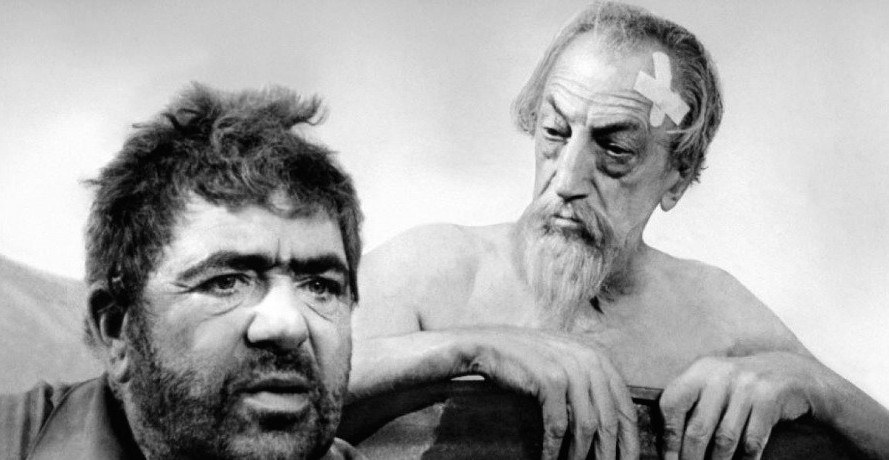
For any Spanish readers, there’s a translation from Michael Nath’s excellent novel British Story to be found in the new issue of the Mexican magazine Argonauta on Shakespeare and Cervantes.
Read it here: https://issuu.com/fomentoculturalirapuato/docs/argonauta-issu_b5fe018e17b451

Friday 27th January 2017, 10.00 am – 6.00 pm
Room 315, University of Westminster, 309 Regent Street, London W1B 2HT
Media, Arts and Hybrid Spaces: Experience and Meaning in the Contact Zone
Study Day organised by Centre for Research and Education in Arts and Media (CREAM) in collaboration with HOMELandS
Mary Louise Pratt introduced the concept of ‘the contact zone’ in 1991, using this term ‘to refer to social spaces where cultures, meet, clash and grapple with each other, often in contexts of highly asymmetrical relations of power, such as colonialism, slavery, or their aftermaths as they are lived out in many parts of the world today’. She goes on to introduce the concept of ‘transculturation’, which is expanded upon in her later book Imperial Eyes: Travel Writing and Transculturation (1992), which describes ‘processes whereby members of subordinated or marginal groups select and invent from materials transmitted by a dominant or metropolitan culture’.
The ‘contact zone’ is a site of artistic production but it can also be a site of negotiation of meanings, a context of experience. In her paper, Pratt expands on the notion of the contact zone beyond the interpretation of colonial encounters and deals with difference and conflict in the classroom. She writes, ‘All the students in the class had the experience … of having their cultures discussed and objectified in ways that horrified them; all the students experienced face-to-face the ignorance and incomprehension, and occasionally the hostility of others … Along with rage, incomprehension, and pain, there were exhilarating moments of wonder and revelation, mutual understanding, and new wisdom—the joys of the contact zone’. How might we broaden Pratt’s notion of the ‘the contact zone’? What is its significance in the contemporary sphere and how might it be a useful site for further investigation?
Please send abstracts (circa 300 words) for 20 mins papers by 6 January 2017 to both organisers:
Mattia Lento – Lentom@westminster.ac.uk
Margherita Sprio – spriom@westminster.ac.uk

Thursday 24th November 2016, 6.00 – 7.30 pm
Fyvie Hall, University of Westminster, 309 Regent Street, London W1B 2HT
New Nativisms in a Global World
The rise of such phenomena as post-reality politics, extreme right-wing parties, legitimised demonisation of refugees, the partisan lines drawn by emotive referendums, populist language at the highest levels of political power, regional politics blocking vast transnational agreements, and so on, have all been signaling the rise of a new nativism of petty locality that seeks a reversal of the status quo with unpredictable consequences.
The theoretical challenge of this is considerable: is this the voice of the disenfranchised and the rise of minor politics; or is it the triumph of populism through mendaciously democratic and inclusive means? What happens to stasis when co-opted? What is the role of affects in post-reality politics today? How to resist the nativist, nationalist call, while carrying on questioning the globalising impetus of capitalism?
The interdisciplinary panel brings together experts from the Westminster Faculty of Social Sciences and Humanities in order to diagnose and reflect upon these recent emergences.
PANEL: Dibyesh Anand (Politics and International Relations); David Cunningham (IMCC / English, Linguistics and Cultural Studies); Radha d’Souza (Westminster Law School); Harriet Evans (Modern Languages and Culture); Thomas Moore (Politics and International Relations); and Lea Sitkin (History, Sociology and Criminology).
CHAIR: Andreas Philippopoulos-Mihalopoulos (Westminster Law & Theory Lab)
Book a place at: www.eventbrite.com/e/new-nativisms-in-a-global-world-tickets-29060636145
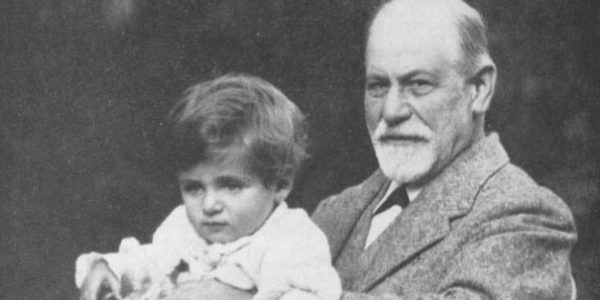
Wednesday 23rd November, 5.00 – 7.00
Room 412, University of Westminster, 309 Regent Street, London W1T
“‘Detestable residue’: phobic resistances from Freud to Blanchot”
Simon Morgan Wortham (Kingston University)
This talk traces Freud’s interest in yet apparent aversion to phobia, from his earliest writings on the topic in the 1890s through to his reinterpretation of the Little Hans case study, originally from 1909, in the mid-1920s. Here, it is possible to detect something like a phobic reaction to phobia itself. In the subsequent writings on the case of Little Hans, including those by Deleuze and Guattari, traces of this phobic reaction can be found contaminating sometimes sharply critical readings just as surely as they do Freud’s own text. Such ‘phobia’ operates precisely through a certain resistance to itself, a doubleness that renders Freud’s phobophobia not just a psychological curiosity but perhaps a feature of the very structure of phobia from the outset. The talk will contrast psychoanalytic approaches to phobia with other possible ways to think about the questions it invites. Since Freud’s most famous early text on phobia takes the example of Pascal’s fear of abysses, the talk will turn to Blanchot’s short essay, ‘Pascal’s Hand’. For Blanchot what is abyssal in Pascal’s text amounts to a ‘detestable residue’ that might prove just too much for psycho-phobic reading.
Simon Morgan Wortham is Professor in Humanities and Co-Director of the London Graduate School at Kingston University. His many publications include Modern Thought in Pain: Philosophy, Politics, Psychoanalysis (2014), The Poetics of Sleep: From Aristotle to Nancy (2013), Derrida: Writing Events (2008), and Counter-Institutions: Jacques Derrida and the Question of the University (2006).
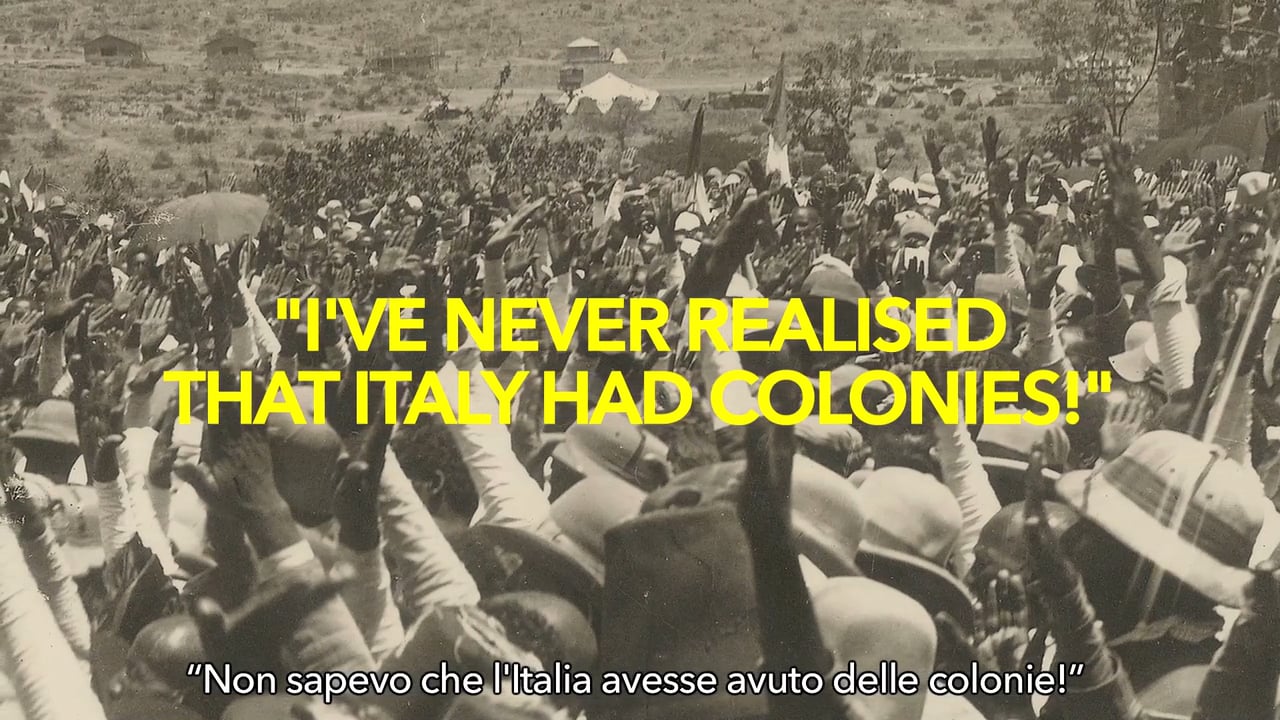
Monday 5th of December 2016, 15.30-18.30
Institute of Modern Languages Research, Senate House, Malet Street, London WC1E (SH243)
Archive-as-Method Salon
Working with Visual Documents of the Italian Colonial Heritage
Presentations, short-film screenings and Q&A with:
Alessandra Ferrini, Gianmarco Mancosu, Martina Melilli and Jacopo Rinaldi
Organised by one of our former MA Art & Visual Culture students, Alessandra Ferrini, of the excellent Mnemoscape, this Salon brings together artists, filmmakers and historians in order to discuss methodological approaches to the exploration and activation of colonial, archival material. Given the recent interest in the Italian colonial past, the salon aims to shed light onto a previously marginalised historical period.
The first part of the salon will introduce to the fascist imperial project and its legacy through Gianmarco Mancosu’s research based on the newsreels on the Ethiopian War of 1935-36 and Alessandra Ferrini’s essay film and pedagogic project Negotiating Amnesia (2015), which is based on archival photographs and propaganda postcards from the same period. The second part of the salon will kick off with Martina Melilli’s presentation of an ongoing body of work stemming from her family’s history in the Libyan colony and in Italy, after the expulsion of Italians from Libya in 1970. It will be followed by Jacopo Rinaldi’s problematisation of the truthfulness of archival material, through his research in the Pirelli Historic Archive (Milan), and the production of works exploring the rubber industry. To conclude, the four researchers will be in conversation and will open up the debate to the public.
Free, but seats are limited. Please email Mnemoscape at mnemoscape@gmail.com to book a place.
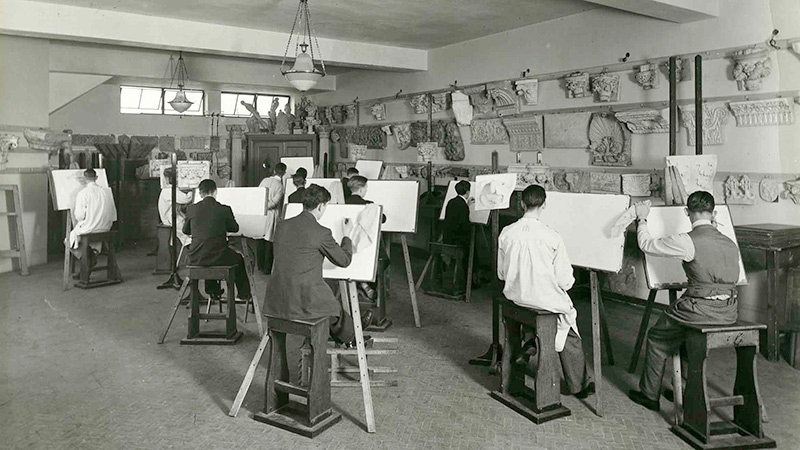
The University of Westminster Graduate School is offering five MPhil/PhD Scholarships in the Faculty of Social Sciences and Humanities, including in Visual Culture, Cultural Studies and English Literature. The Scholarships are open to candidates with a Home fee status, and are full-time for three years, including an annual stipend of £16,000 and a Home fee waiver starting in September 2017. As part of the Scholarship candidates will be required to undertake up to six hours teaching per week. Deadline: February 10th 2017 by 5pm.
For general enquiries please contact Dr Leigh Wilson, wilsonl@westminster.ac.uk, T: 020 7911 5000 ext 68955.
At the same time, the Faculty is also offering three fully funded Quintin Hogg Trust PhD studentships beginning in September 2017 for projects using the University of Westminster Archive. The Archive holds a wide collection of material on the history of the University and its predecessor institutions from 1838 to the present. The Studentships will be awarded to projects making excellent use of the University Archive, and to applicants demonstrating commitment to the promotion of the Archive both within the University and externally and to the development of the University’s research student community. The three Scholarships will be awarded across the following broad areas: Creative Writing based on material in the Archive; Performing science in the 19th century; Leisure, religion and mobility: Quintin Hogg and the Regent Street Polytechnic; Photography and/as pedagogy
It is strongly recommended that candidates for these scholarships contact the Archive and arrange to visit and speak to an archivist before applying. Please contact Anna McNally at the Archive: a.mcnally@westminster.ac.uk.
Further information on all the Scholarships, and details on how to apply, here: https://www.westminster.ac.uk/courses/research-degrees/research-areas/social-sciences-and-humanities/research-studentships
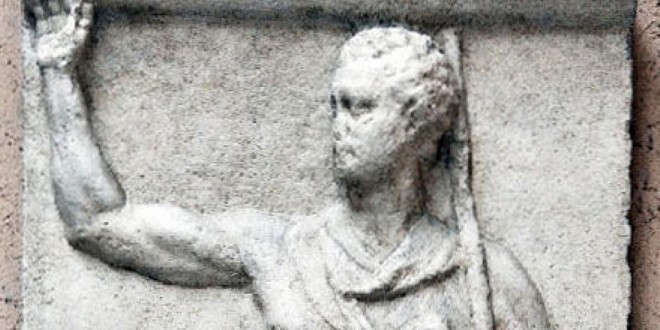
We are very pleased to announce an exciting new project by the IMCC’s own Elinor Taylor, who is launching a podcast series, “Conversations on Communism”, in collaboration with Henry Stead. Episode 1 is now online, with Robert Lister discussing Frank Walbank and Polybius.
Check it out at: http://www.bravenewclassics.info/index.php/listen/

If anyone is in Paris on Friday 11th November, the IMCC’s Deputy Director, David Cunningham, is speaking on a panel at the Centre Culturel Suisse on “Post-Photography“, as part of Paris Photo.
The blurb is in French, but the discussion is in English. Kicking off at 8pm.
Soirée menée par Duncan Forbes, directeur du Fotomuseum Winterthur. Avec :Melanie Bühler, commissaire indépendante, Amsterdam and New York ; Joshua Chuang, New York Public Library ; David Cunningham, Institute for Modern and Contemporary Culture, Londres ; Camille Le Houezec et Joey Villemont, It’s Our Playground, Thorigny-sur-Marne ; Nadine Wietlisbach, Photoforum PasquArt, Bienne.
Further details at: http://www.ccsparis.com/events/view/la-post-photographie-un-nouveau-paradigme
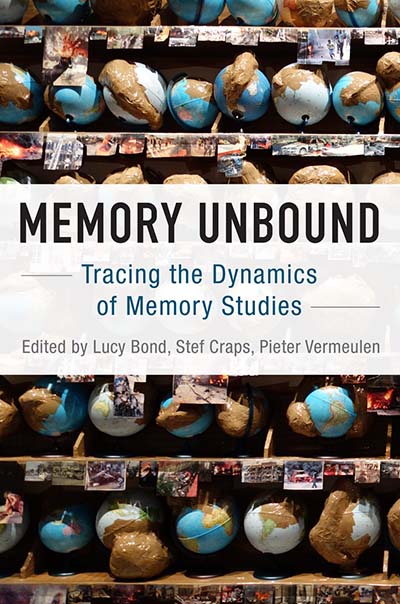
We’re delighted to announce the publication this month of the collection Memory Unbound: Tracing the Dynamics of Memory Studies, co-edited by our own Lucy Bond with Stef Craps and Pieter Vermeulen.
Though still a relatively young field, memory studies has undergone significant transformations since it first coalesced as an area of inquiry. Increasingly, scholars understand memory to be a fluid, dynamic, unbound phenomenon—a process rather than a reified object. Embodying just such an elastic approach, this state-of-the-field collection systematically explores the transcultural, transgenerational, transmedial, and transdisciplinary dimensions of memory—four key dynamics that have sometimes been studied in isolation but never in such an integrated manner. Memory Unbound places leading researchers in conversation with emerging voices in the field to recast our understanding of memory’s distinctive variability.
Order your copy here: http://www.berghahnbooks.com/title/BondMemory

Wednesday 9th November, 5.00 – 7.00
Room 412, University of Westminster, 309 Regent Street, London W1T
“Lying, Testimony and Murder in Early Modern England: The Case of Annis and George Dell (1606)”
Andrew Hadfield (University of Sussex)
This talk will explore a particularly gruesome murder story from the early 1600s, recorded in two pamphlets which each give slightly different versions of the evidence. The paper will analyse these works in order to reconstruct what we can of a troubling and bizarre case, and to reflect on the nature and significance of testimony in early modern England.
Andrew Hadfield is Professor of English at the University of Sussex and author of books including Edmund Spenser: A Life (OUP 2012), Shakespeare and Republicanism (CUP 2005) and Shakespeare, Spenser and the Matter of Britain (Palgrave 2002). He is also editor of the Oxford Handbook of English Prose, 1500-1640 (2013).

Thursday 24th November 2016, 6.00 – 7.30 pm
Fyvie Hall, University of Westminster, 309 Regent Street, London W1B 2HT
New Nativisms in a Global World
The rise of such phenomena as post-reality politics, resistance voting, extreme right-wing parties, legitimised demonisation of refugees, the partisan lines drawn by emotive referendums, populist language at the highest levels of political power, regional politics blocking vast transnational agreements, and so on, have all been signaling the rise of a new nativism of petty locality that seeks a reversal of the status quo with unpredictable consequences.
The theoretical challenge of this is considerable: is this the voice of the disenfranchised and the rise of minor politics; or is it the triumph of populism through mendaciously democratic and inclusive means? What happens to stasis when co-opted? What is the role of affects in post-reality politics today? How to resist the nativist, nationalist call, while carrying on questioning the globalising impetus of capitalism?
The interdisciplinary panel brings together experts from the Westminster Faculty of Social Sciences and Humanities in order to diagnose and reflect upon these recent emergences.
PANEL: Dibyesh Anand (Politics and International Relations); David Cunningham (IMCC / English, Linguistics and Cultural Studies); Radha d’Souza (Westminster Law School); Harriet Evans (Modern Languages and Culture); Thomas Moore (Politics and International Relations); and Lea Sitkin (History, Sociology and Criminology).
CHAIR: Andreas Philippopoulos-Mihalopoulos (Westminster Law & Theory Lab)
Book a place at: www.eventbrite.com/e/new-nativisms-in-a-global-world-tickets-29060636145


The Institute for Modern and Contemporary Culture
University of Westminster Department of English, Linguistics and Cultural Studies
32-38 Wells Street, London W1T 3UW. United Kingdom.
